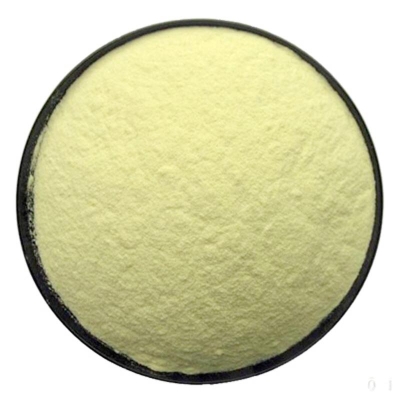-
Categories
-
Pharmaceutical Intermediates
-
Active Pharmaceutical Ingredients
-
Food Additives
- Industrial Coatings
- Agrochemicals
- Dyes and Pigments
- Surfactant
- Flavors and Fragrances
- Chemical Reagents
- Catalyst and Auxiliary
- Natural Products
- Inorganic Chemistry
-
Organic Chemistry
-
Biochemical Engineering
- Analytical Chemistry
- Cosmetic Ingredient
-
Pharmaceutical Intermediates
Promotion
ECHEMI Mall
Wholesale
Weekly Price
Exhibition
News
-
Trade Service
The mouth of the Yangtze River is a treasure trove of fishery germplasm resources in China, which is pregnant with five major fishing floods such as Chinese river crab (winter crab) and knife fish
.
The excellent crab seed germplasm resources in the Yangtze River Estuary support the river crab breeding industry in
China.
In the process of life history of Chinese river crabs, it is necessary to go through sea migration and river migration, and the salinity change of the Yangtze River estuary will have an important impact on its breeding, which may lead to changes
in the spawning field range of river crabs, the quality of broodstock breeding, and the amount of crab seedling resources.
The adaptation mechanism of Chinese river crab to salinity in the Yangtze River Estuary is one of the scientific problems that need to be studied in a key way
.
.
The excellent crab seed germplasm resources in the Yangtze River Estuary support the river crab breeding industry in
China.
In the process of life history of Chinese river crabs, it is necessary to go through sea migration and river migration, and the salinity change of the Yangtze River estuary will have an important impact on its breeding, which may lead to changes
in the spawning field range of river crabs, the quality of broodstock breeding, and the amount of crab seedling resources.
The adaptation mechanism of Chinese river crab to salinity in the Yangtze River Estuary is one of the scientific problems that need to be studied in a key way
.
The Yangtze River Estuary Fishery Ecological Innovation Team analyzed the preference selection and adaptation changes of Chinese river crabs to salinity from the perspective of behavior, suggesting that there were obvious differences in the adaptation behavior of Chinese river crabs to salinity, and that female broodstock and bigeye larvae had obvious selection behaviors for high salinity (≥21) and low salinity (≤5), respectively, and abdominal opening and closing, antennae receptors, etc.
played an important role
in the behavioral response of osmotic pressure regulation 。 The relevant research results provide a reference for the analysis and evaluation of the salinity adaptation mechanism of Chinese river crab, predict the change trend of spawning ground and migratory route of Chinese river crab in the Yangtze River estuary, and provide a reference for
the selection of suitable breeding and stocking waters.
played an important role
in the behavioral response of osmotic pressure regulation 。 The relevant research results provide a reference for the analysis and evaluation of the salinity adaptation mechanism of Chinese river crab, predict the change trend of spawning ground and migratory route of Chinese river crab in the Yangtze River estuary, and provide a reference for
the selection of suitable breeding and stocking waters.
The results of the above research results "Salinity-driven changes in behavioral responses of catadromous Eriocher sinensis" and "Correlation analysis of migration inEriocheir sinensisof the Yangtze River estuary.
" "based on salinity preference" was published
online in Animals (JCR Region I, Impact Factor 3.
231) and Environmental Science and Pollution Research (JCR Zone II, Impact Factor 5.
190) in Environmental Science and Ecology 。 The two papers were funded by the National Key R&D Program of China, the National Natural Science Foundation of China, and the Shanghai River Crab Modern Agricultural Industry Technology System Project, and the corresponding author is researcher
Feng Guangpeng.
" "based on salinity preference" was published
online in Animals (JCR Region I, Impact Factor 3.
231) and Environmental Science and Pollution Research (JCR Zone II, Impact Factor 5.
190) in Environmental Science and Ecology 。 The two papers were funded by the National Key R&D Program of China, the National Natural Science Foundation of China, and the Shanghai River Crab Modern Agricultural Industry Technology System Project, and the corresponding author is researcher
Feng Guangpeng.







